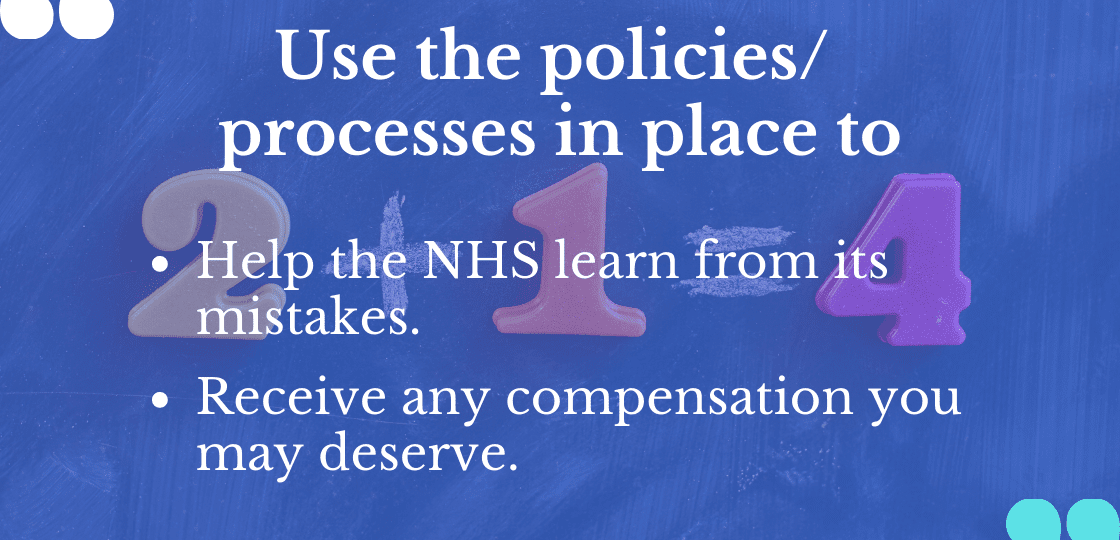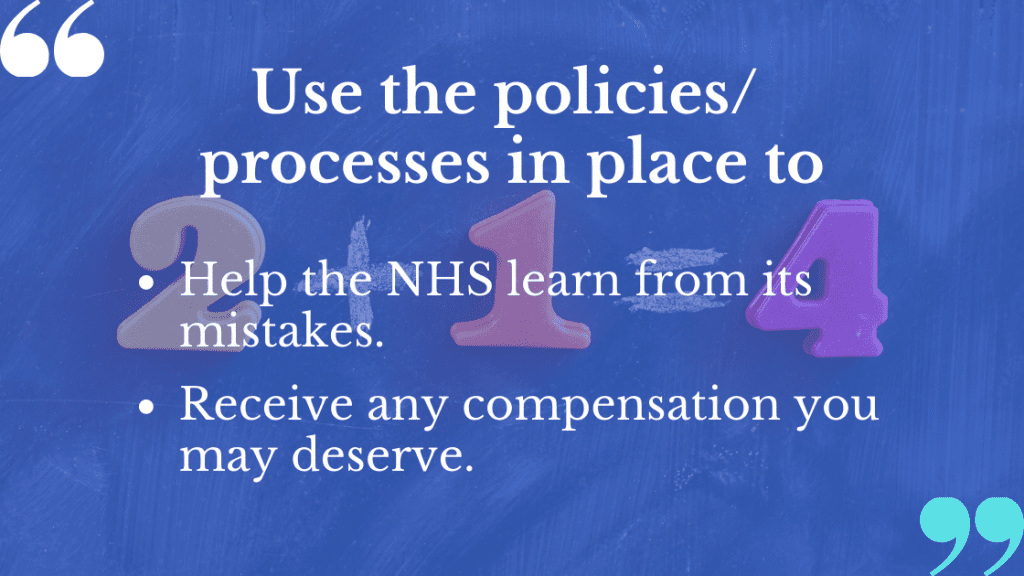
How do you make an effective clinical negligence complaint?
Do you need to make a clinical negligence complaint? Whether it's against an NHS hospital or private practice, we can help. We have the expert solicitors to ensure you get the compensation that you rightfully deserve.
Start your claimGet Your Free Claim Assessment Now
How do you make an effective clinical negligence complaint?
If you feel you’ve been a victim of clinical negligence under NHS care, the first thing to do is make a formal complaint.
In essence, there is an official NHS Complaints procedure to launch a complaint against your NHS practitioner. But it’s less helpful for making a clinical negligence claim.
Starting your claim can, in effect, encounter many complications. One that comes complete with time limits and even a health service ombudsman’s* expert opinion. In turn, you may find it helps to seek advice from a qualified clinical negligence solicitor early on.
An expert from our legal panel can tell you if you have grounds to make (and win) a claim. In short, this won’t affect any official complaint process you enter with the NHS. Moreover, it can even help your case. In essence, it builds a better picture of what you went through before and as a result of the negligence.
Another important thing to remember is this: you have just 12 months to make a complaint.
What’s the difference between a complaint and a claim?
Complaints can effectively get your negative experience on the record. Whether it’s by way of apology or change in policy, an official complaint may be more appropriate than a claim.
Citizens Advice includes negligent actions resulting in a possible complaint such as:
- The failure of a medical product, for instance;
- Poor communication on the job, as well;
- In addition, any failures to relieve pain, provide nutrition or hydration;
- Incorrect diagnoses or treatments, too;
- Also, any unnecessary delays in treatment or diagnosis;
- Moreover, any negligence that leads to a personal injury, and;
- In addition, any ignorance of important symptoms.
Medical negligence compensation will – if you win – get the negligence you suffer compensated. Moreover, it provides you with appropriate compensation to ensure you don’t have to suffer financially.
However, even if the case does rule in your favour, they won’t have the power to
- Discipline the medical professional.**
- Possibly enact and then enforce a change of policy.
- Even ensure you receive an apology.
If this is the outcome you’d prefer, an official complaint may be a more appropriate channel.

What if I don’t want to make a claim?
In cases where you suffered negligent care but were lucky enough not to become injured or unwell as a result, you can choose to register an official complaint without starting a medical negligence claim. You may decide to do this in the hope that registering this complaint will result in an apology. Moreover, to prevent the same thing from happening to someone else.
However, if your life faces a negative impact from the treatment, you are within your rights to make a claim for compensation. Our team can help you start that clinical negligence complaint process.
Is it ethical to make a criminal negligence complaint against the NHS?
Many people with personal injury complications are reluctant to take action against the NHS. This is often because they fear the organisation is ‘too big’ to take on. Additionally, they think it’s unfair to take legal action against a publicly-funded institution. Especially one in which the vast majority of staff are genuinely trying their best to help.
However, we’d ask you to think of it in the following terms: as someone who can make a difference.
If the standards of the NHS aren’t met, you should alert them and give them a chance to fix it. They already recognise that standards can slip, and pledge full investigation of all complaints. This pledge also includes your right to receive compensation if NHS negligence causes harm to you.
You can influence Clinical Commissioning Groups
Clinical Commissioning Groups (CCGs) are a major background influencer on NHS Trusts that you can make an impact through your complaint. In short, CCGs influence the planning and budget of a given trust. But recently, Government studies reveal significant concerns about the long-term effectiveness of CCGs. In short, their scope grows wider geographically, scooping up more local trusts.
We are concerned that, as Integrated Care Systems develop, accountability systems will be weakened and the performance of individual CCGs will become less transparent.
Accordingly, a change at the top (especially one via claim or complaint) can affect how treatment commences in your area’s NHS hospital or with the negligent healthcare professional.
You can influence the General Medical Council
The GMC (which supports medical professionals) is also on board with ensuring patients have rights. They are lobbying to make certain that changes in practice to enable those rights to be given time to become medical treatment standards.
Government will need to engage with providers to guarantee the appropriateness and adequacy of products to ensure they do not include restrictions, caps or exclusions that will put patient access to compensation at risk.
Context of the NHS system
To put things in context, the NHS treats hundreds of millions of people annually. In short, a small fraction of those people make claims against the NHS, so things don’t go wrong very often. Therefore, it’s important to use the policies/processes in place to:
- help the NHS learn from its mistakes, plus;
- receive any compensation you may deserve.
If you suffer at the hands of a medical practitioner in the last three years, we can help. Get in touch here to discuss your situation and we’ll be able to give you an idea of how likely you are to win your case, and how much compensation you could be entitled to.
*The Parliamentary and Health Service Ombudsman has a specific role that you can read about.
**With the exception of the professional facing discipline by the company due to the claim.

